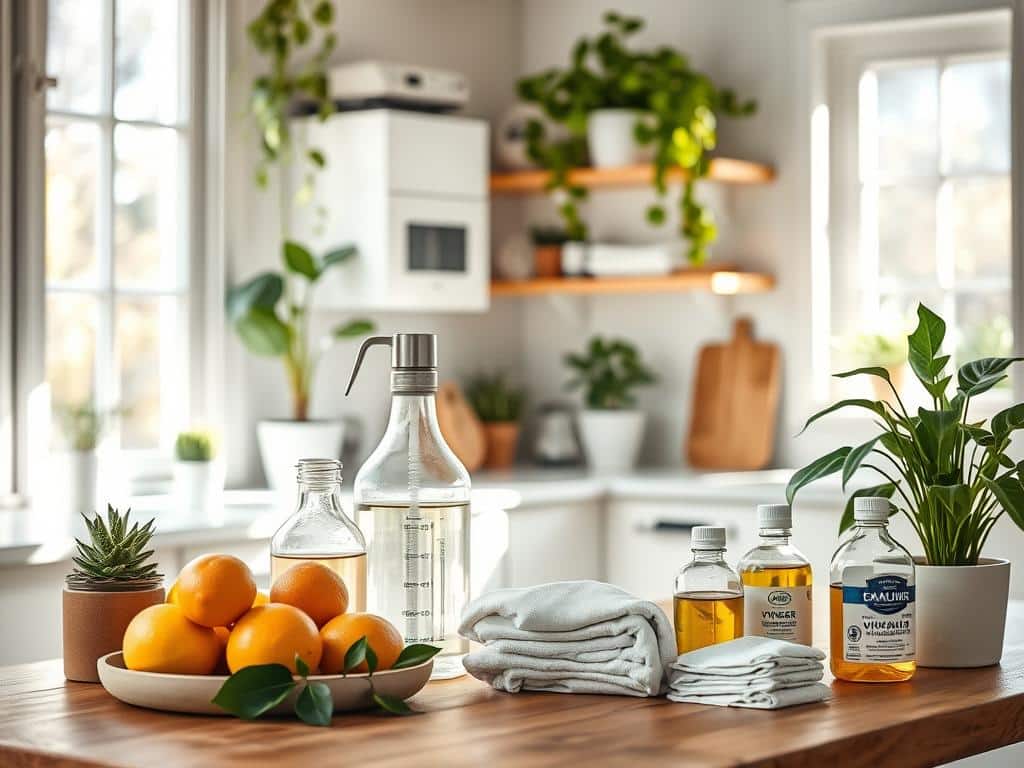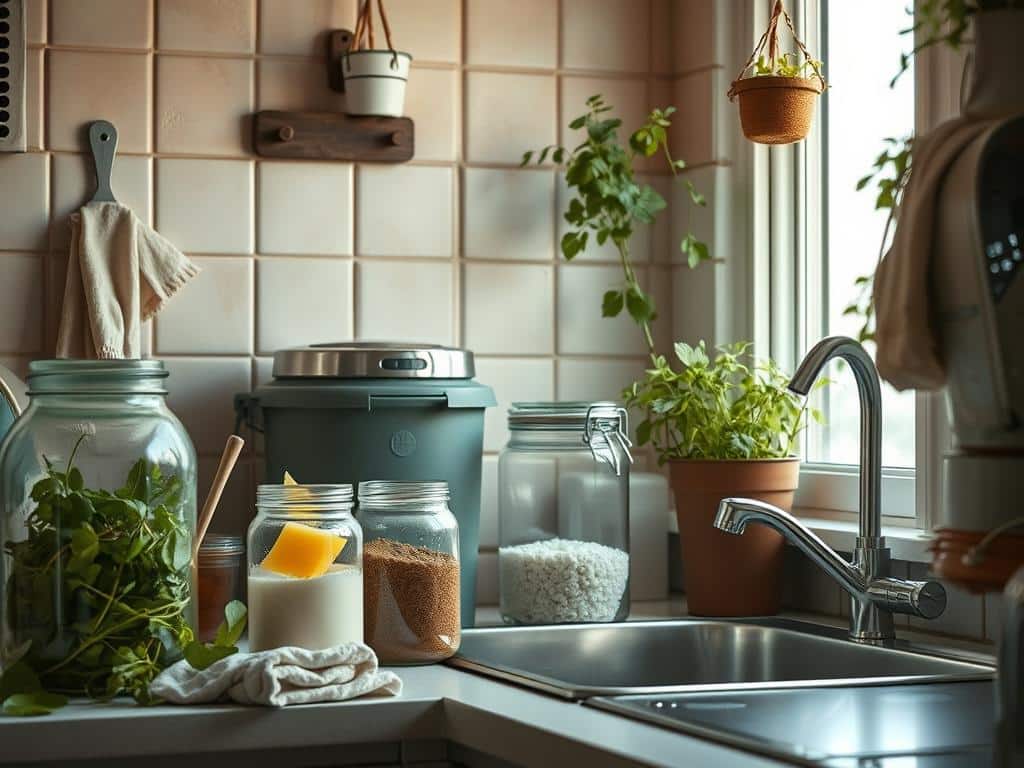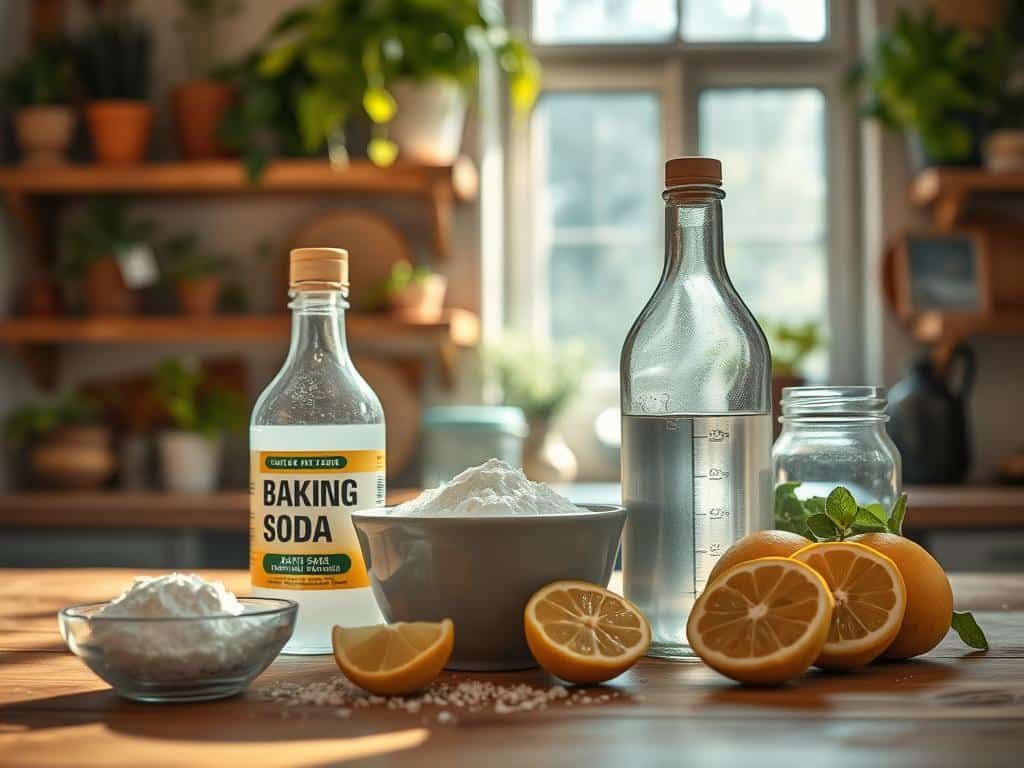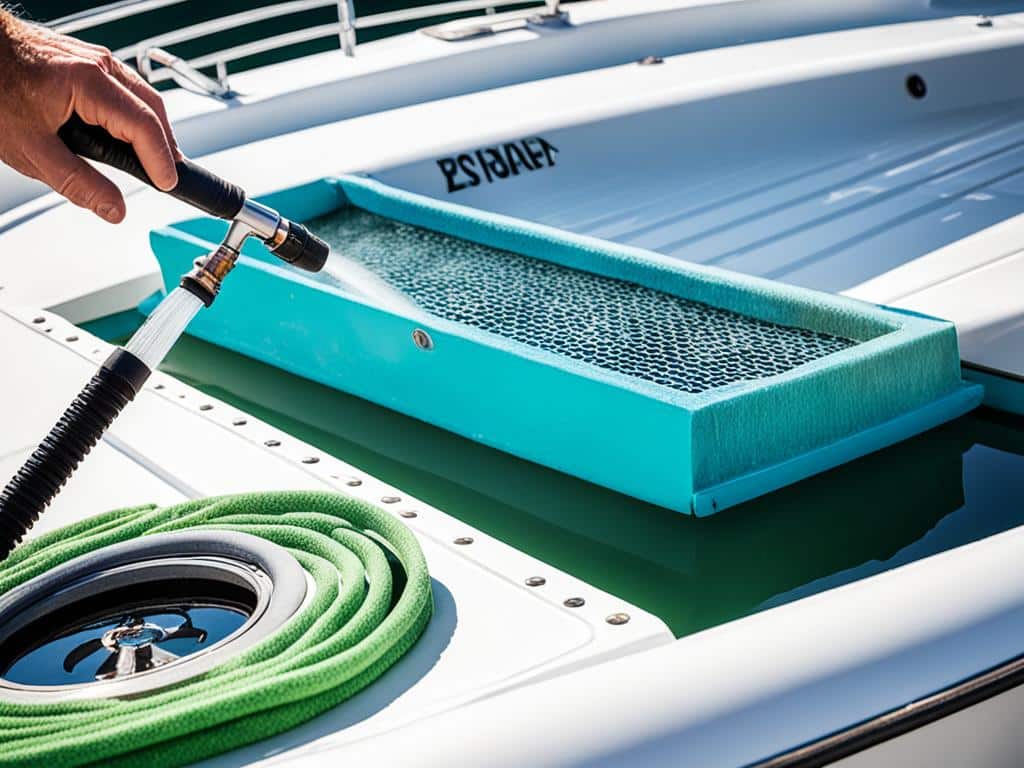
Ever wondered what the best boat cleaning techniques are to keep your vessel in prime condition? It’s not just about looks; regular cleaning is essential to prevent damage from the harsh marine environment. Choosing the right marine-safe cleaning agents is crucial, not only for the maintenance of your vessel but also for protecting aquatic life and water quality.
From specialized hull cleaners to deck washes and vinyl protectants, there are products designed for each part of your boat. Learning which products are safe and effective can save you time and protect your investment. According to the Marine Retailers Association, proper disposal of cleaning agents is key to environmental protection. The Environmental Protection Agency (EPA) also provides guidelines on eco-friendly products, while tips from the National Marine Manufacturers Association (NMMA) highlight the best vessel maintenance practices.
Intrigued to discover more? Dive into these strategies and tips to keep your vessel clean and gleaming, while ensuring environmental safety.
Essential Cleaning Supplies for Your Boat
Keeping your boat in pristine condition starts with having the right boat cleaning supplies. You don’t want to risk using products that could damage surfaces or the marine environment. Here are some tips for selecting the best cleaning products and tools.
Choosing the Right Cleaning Products
When choosing boat cleaning supplies, aim for products that are gentle yet effective. Look for items like bilge cleaners that are tough on grime but safe for your boat’s surfaces. A good non-skid deck cleaner will keep your deck spotless and maintain grip underfoot. Always go for marine-safe options recommended by experts like the American Boating Association.
Must-Have Cleaning Tools
To get the job done right, you need reliable tools. Microfiber cloths are essential for streak-free cleaning. Make sure you have various soft-bristle brushes and sponges for different surfaces. According to reviews from West Marine, these tools are praised by both boating enthusiasts and professionals alike.
Investing in the correct tools and cleaning agents ensures the longevity of your boat. Studies by the Boat US Foundation highlight the positive long-term effects of using appropriate cleaning products. So, stock up on quality supplies and give your boat the care it deserves.
Step-by-Step Guide to Cleaning Your Vessel
Keeping your boat looking pristine requires careful preparation and a methodical approach. A clean vessel not only shines on the water but also stays in better condition for longer. Below, we’ve outlined the boat washdown steps, marine detailing tips, salt removal strategies, and teak care techniques to help you achieve thorough, professional results.
Preparing Your Boat for Cleaning
Before you start, make sure to cover sensitive electronics and remove all valuables. This prevents any damage or loss during the cleaning process. You should also gather all your necessary supplies, including soaps, brushes, and towels.
Detailed Cleaning Process
Break down the cleaning process into manageable sections, working compartment by compartment. Start with a comprehensive washdown using fresh water to remove loose dirt and salt. For marine detailing, employ specialized products for each surface, such as vinyl protectants for seating and hull cleaners for the exterior.
After the initial wash, focus on salt removal using a salt remover solution. Salt buildup can cause corrosion if left unattended, so this step is crucial. For teak care, use a teak-specific cleaner to maintain the natural beauty of your boat’s wooden features without causing wear or damage.
- Rinse the entire boat with fresh water.
- Use appropriate marine-safe cleaners on all surfaces.
- Apply salt removal solutions to prevent corrosion.
- Gently scrub teak surfaces with a specialized cleaner.
- Dry the boat thoroughly, paying special attention to nooks and crannies.
Remember, taking the time to follow these boat washdown steps and recommended marine detailing tips will keep your vessel in tip-top shape for many boating seasons to come.
Common Mistakes to Avoid When Cleaning Your Boat
Cleaning your boat is essential, but knowing the common pitfalls can save you a lot of trouble. Let’s go over the major boat cleaning blunders you need to avoid.
Using Harsh Chemicals
One of the biggest marine detailing errors is using harsh, abrasive chemicals. These can strip protective coatings and cause irreversible damage. Many boat owners think powerful cleaners are better, but they often overlook the long-term harm. Stick to marine-safe, gentle cleaners to maintain the integrity of your protective coatings.
Here’s a comparison of safe vs. harsh cleaners:
| Safe Cleaners | Harsh Chemicals |
|---|---|
| Marine-safe soaps | Bleach |
| Vinegar-based solutions | Ammonia |
| Biodegradable cleaners | Acid-based cleaners |
Skipping Regular Maintenance
Another common mistake is skipping regular cleaning sessions. Infrequent cleaning leads to the build-up of grime and can result in long-term issues. Consistent maintenance is key to avoiding marine detailing errors. Dirty boats can suffer from stubborn stains and deep-embedded dirt that’s much harder to clean later.
To avoid these blunders, create a cleaning schedule and stick to it. Regularly maintained boats are not only cleaner but also retain their value better. Plus, it keeps you from dealing with more severe problems down the road.
A marine surveyor’s report shows the impact of improper maintenance on 75% of boats inspected. Case studies from Boat Detailing 101 echo this, highlighting frequent boat cleaning blunders. Research by BoatUS also outlines the adverse effects of neglecting regular upkeep.
Eco-Friendly Cleaning Solutions for Your Vessel
Keeping your boat clean doesn’t have to come at the expense of the environment. Opt for biodegradable boat cleaners and eco-friendly practices to ensure your vessel is as kind to the planet as it is to your enjoyment on the water.
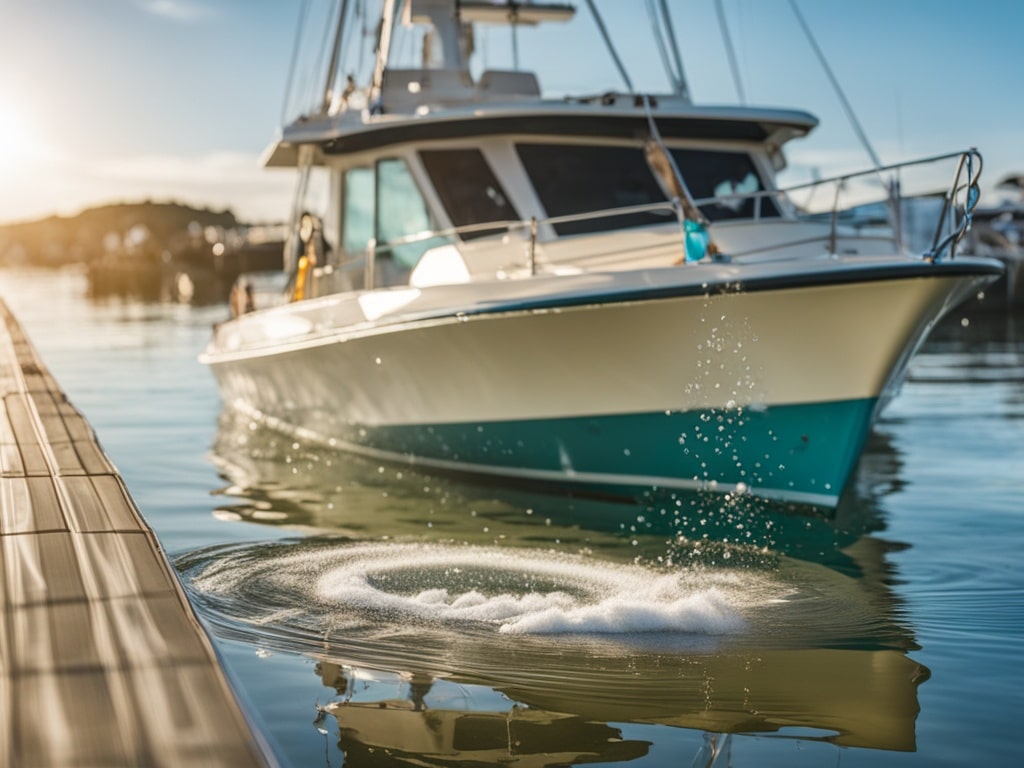
Naturally Derived Products
Using naturally derived products is an excellent step toward environmentally friendly cleaning. Brands like Simple Green and EcoSafe offer biodegradable boat cleaners that effectively remove grime without harming aquatic life. The EPA-approved list of marine cleaning products is a great resource for choosing safe products.
DIY Eco-Friendly Cleaners
For those who prefer home-made marine solutions, there are plenty of effective recipes using household items. A simple mixture of white vinegar and baking soda can remove tough stains, while a combination of lemon juice and water works wonders as a surface cleaner. Not only are these solutions effective, but they also minimize environmental impact.
Advocating for sustainable cleaning practices ensures both your personal satisfaction and the well-being of our waterways. Organizations like Green Boating USA support these initiatives by endorsing eco-friendly products and methods. Practical Sailor has tested and recommended various environmentally friendly cleaning practices, further highlighting their effectiveness and benefits.
Best Practices for Maintaining a Clean Vessel
Keeping your vessel pristine starts with a solid boat maintenance schedule. Regular routines help you stay on top of cleaning tasks, making the process less daunting. Simple steps like rinsing down your boat after each trip can prevent the buildup of grime and salt.
Investing in the right protective finishes can make a world of difference. These coatings safeguard your boat from harsh sun and saltwater damage. Opt for products that offer UV protection for boats to maintain their appearance and functionality over time.
Many experienced boaters rely on advice from the Boat Owners Association of The United States to ensure long-term vessel health. Their tips and proven methods can help you avoid costly repairs down the line.
Creating a year-round boat maintenance schedule doesn’t have to be complicated. Here’s a basic example to keep your vessel in top shape:
| Task | Frequency |
|---|---|
| Rinse boat after use | Every trip |
| Check protective finishes | Quarterly |
| Apply UV protection | Bi-annually |
| Full detailing | Annually |
Following these best practices ensures your vessel remains clean and protected. Always choose high-quality products designed specifically for marine environments to get the best results.
Effective Stain Removal Techniques
Maintaining the pristine condition of your boat can be a challenging task, especially when it comes to removing pesky stains. Let’s dive into some key techniques for dealing with common issues like mold, mildew, and oil stains.
Removing Mold and Mildew
Mold removal on boats is crucial to keep your vessel looking fresh and clean. Start by using specialized mold removers that target these stubborn stains. For a natural alternative, you can create a mixture of white vinegar and water. Spray the solution on affected areas and scrub gently using a soft brush. Keeping your boat well-ventilated can prevent mold and mildew from returning.
Tackling Oil Stains
When it comes to oil stain remedies for boats, quick action is key. Start by blotting as much oil as possible from the surface. Use a marine-safe degreaser to break down the stain, followed by a thorough rinse with water. Don’t forget to use protective coverings to safeguard your marine upholstery care. Regular cleaning and proper maintenance can significantly reduce the occurrence of stubborn stains.
Why Using Proper Cleaning Techniques Matters
Taking care of your boat involves more than just a quick rinse. Proper cleaning techniques are crucial for marine maintenance and boat value preservation. Let’s dive into why these methods are so important for prolonging your boat’s life and enhancing your overall boating experience.
Prolonging the Life of Your Boat
Utilizing the right cleaning techniques can significantly extend the life of your boat. Marine maintenance involves routinely using specialized products that prevent damage from saltwater, UV rays, and general wear and tear. By focusing on boat value preservation, you ensure your vessel remains in top condition, reducing the need for costly repairs down the line.
Experts from NADA Guides emphasize that a well-maintained boat retains its value longer. This means employing correct cleaning habits not only helps maintain its appearance but also positively impacts its resale value. Regular upkeep, as recommended by boating authorities, can prevent long-term damage and keep your boat looking and functioning like new.
Enhancing Your Boating Experience
A clean, well-maintained boat is crucial for an enjoyable boating experience. Proper marine maintenance makes your time on the water safer and more pleasurable. According to Sea Tow statistics, vessels that undergo regular cleaning and maintenance are less likely to face unexpected issues, thereby ensuring smooth sailing every time.
Moreover, a survey from Boat Trader highlights that boat owners who invest in routine maintenance enjoy their time on the water more. They face fewer troubles and spend less time dealing with mechanical issues. Proper cleaning plays a crucial role in this, making every trip more relaxing and enjoyable.
Conclusion
In essence, keeping your vessel in top shape demands the right cleaning methods and supplies. Not only do you preserve your boat’s longevity, but you also enhance your overall boating satisfaction. By understanding and implementing proper cleaning techniques, you ensure that your boat runs smoothly and remains a source of joy for years to come.
Regular vessel upkeep isn’t just a chore; it’s an investment in your boat’s future. When you use marine-safe products and eco-friendly practices, you’re contributing to safer and cleaner waterways. This continuous care stands as a testament to your commitment to preserving not just your boat, but also the environment.
Embrace responsible boat maintenance, knowing that every effort you make today pays dividends in longevity and enjoyment. When you prioritize vessel upkeep and clever cleaning strategies, you secure more fulfilling and hassle-free adventures on the water.

